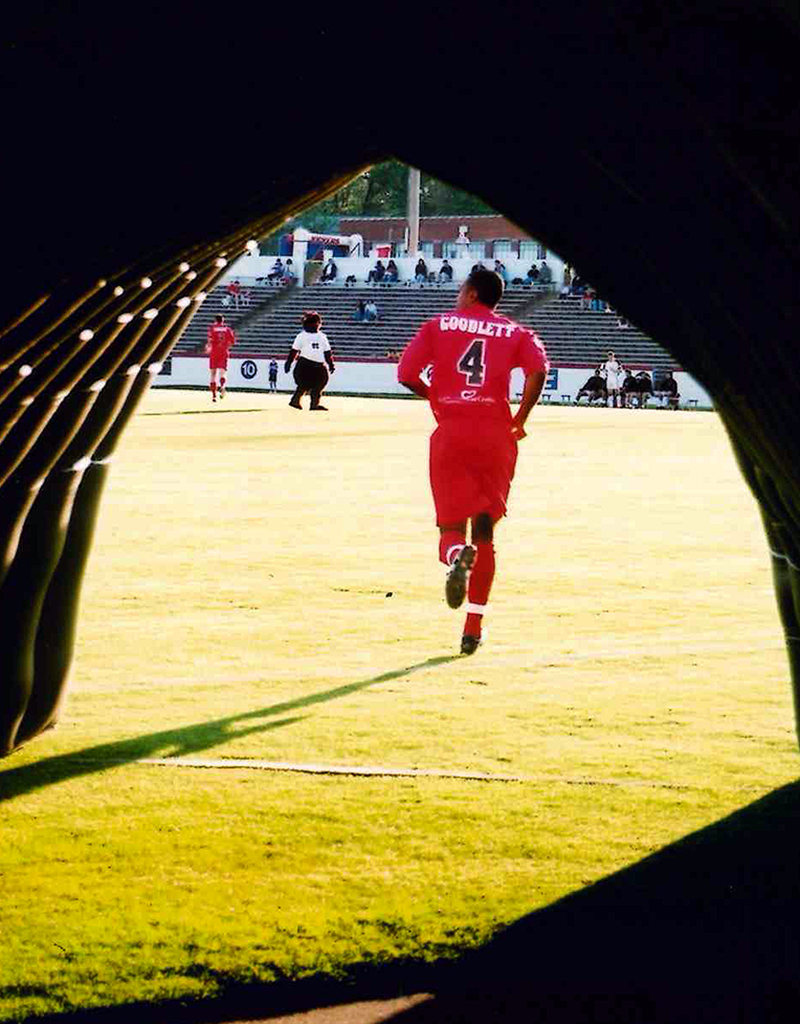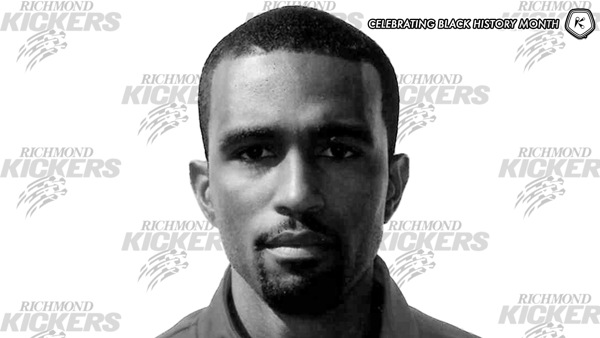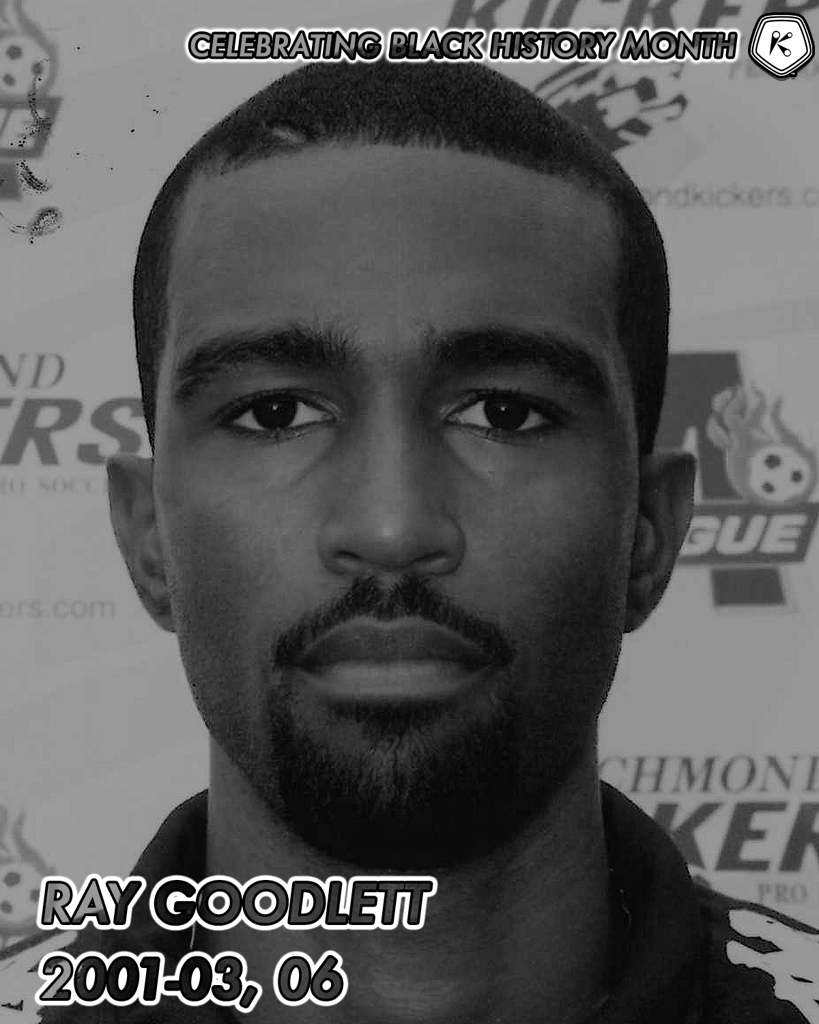
In honor of Black History Month, the Richmond Kickers are excited to celebrate Black club icons. In this edition, we take an in-depth look at Ray Goodlett and his time with the Kickers, his decision to stop playing during his prime years in favor of becoming a minister, and reflecting on the challenges Black players face in the game.
Raymond Goodlett, or Ray, was born in 1976 in Olney, Maryland. He attended Howard University and studied chemistry while playing for the school team from 1994 to 1997. After graduating from Howard, Goodlett signed with the Hershey Wildcats of the USL A-League in 1999, only to be loaned to D.C. United several months later. After a quick stint with D.C. United, he was waived and signed by the Richmond Kickers in 2001.
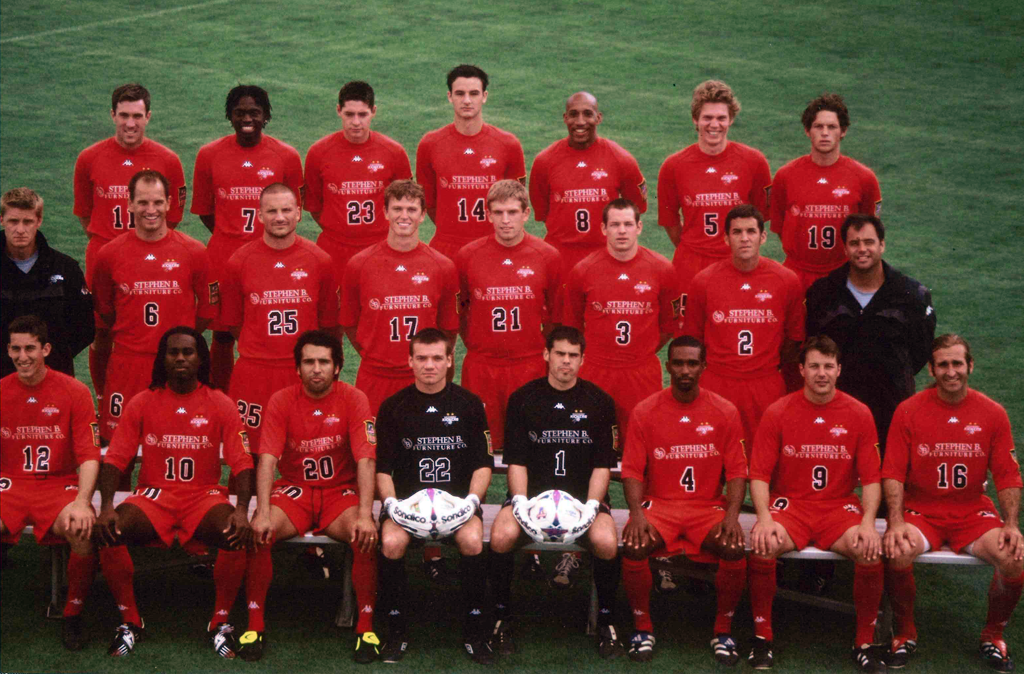
Goodlett played in the defense under head coach Leigh Cowlishaw, and alongside the likes of Kevin Jeffrey, Rob Ukrop, and Josh Henderson for two years before hanging up his boots after the 2003 season to attend Fuller Theological Seminary in Pasadena, Calif.
“I had the growing sense that I was being called,” Goodlett said. “I just felt more compelled by that sense of what I should be doing at that time, as opposed to continuing to play soccer. And so that’s what I did, I packed up, went out there to California, went to seminary, and still love the game. I wish I could have done both at the same time.”
After he graduated from Fuller, he became the Director of Every Nation Campus Ministries at the University of Richmond, when he decided to return for a final season with the Kickers in 2006.
Taking off two years to pursue his life’s mission made his return a greater challenge physically, but it gave Goodlett the opportunity to finish his professional career on top.
“You know, we won the championship that year. To return to share that moment with the guys and I definitely know, it was only maybe two years older, but my body felt more than two years older after doing it.”
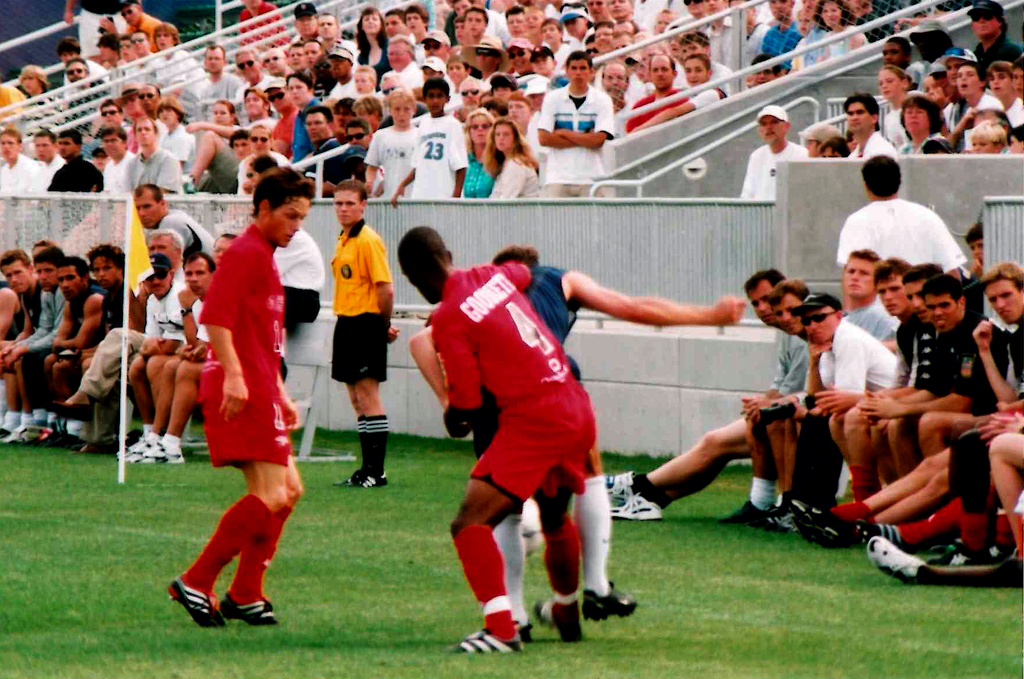
Ray Goodlett is now a pastor at Redemption Hill Church in Richmond, Virginia just a short drive from where he used to kick about the ball in City Stadium under the big lights. While Goodlett still finds himself before large crowds he is doing so now from the approach of faith and devotion to God.
Goodlett said that his faith in God and religion is a way for him to explore the ways that race transcends through life.
“In the church, we have an identity, we’re taught in the Bible we have an identity from God that transcends all of those different things,” Goodlett says, “we’re more defined by grace than we are by race.”
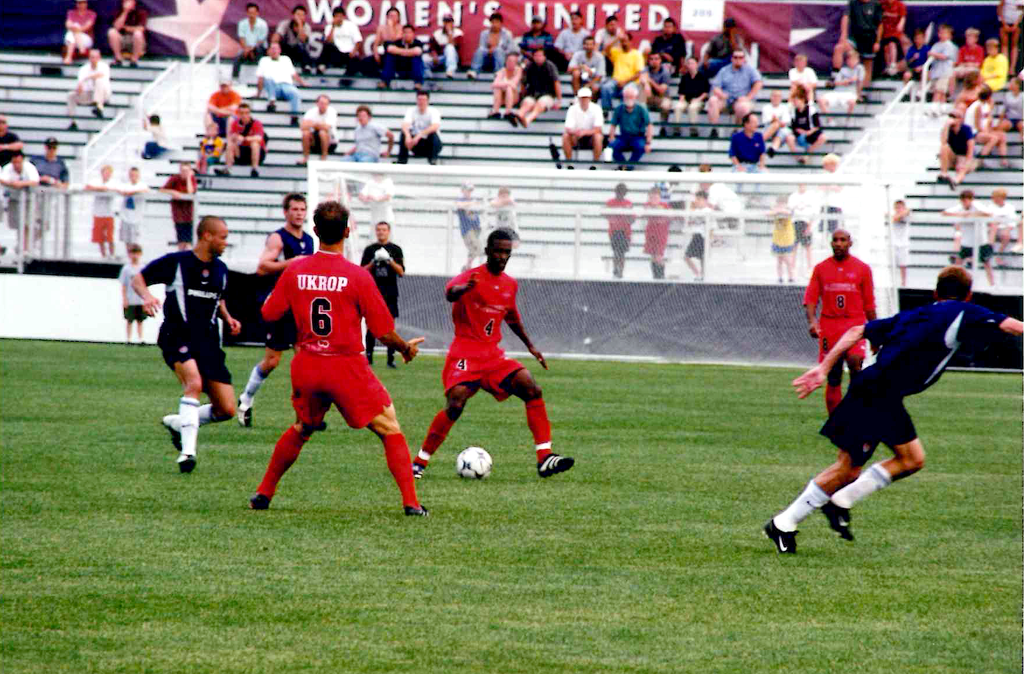
In relation to recognizing and celebrating Black history, Ray believes that it is both its own entity and a throughline of everyone’s history.
“We say Black history, and that makes sense,” Goodlett said. “But it’s really making sure that we have included an appropriate focus on all kinds of people when we talk about our common history…when I think about Black history it’s just part of American history, a very important part of American history.
“I think it matters when people look to the past. And they can easily find reasons to celebrate that where they can quickly be associated with people that did things that were significant that have contributed to the success of this nation, and the world in different ways.”
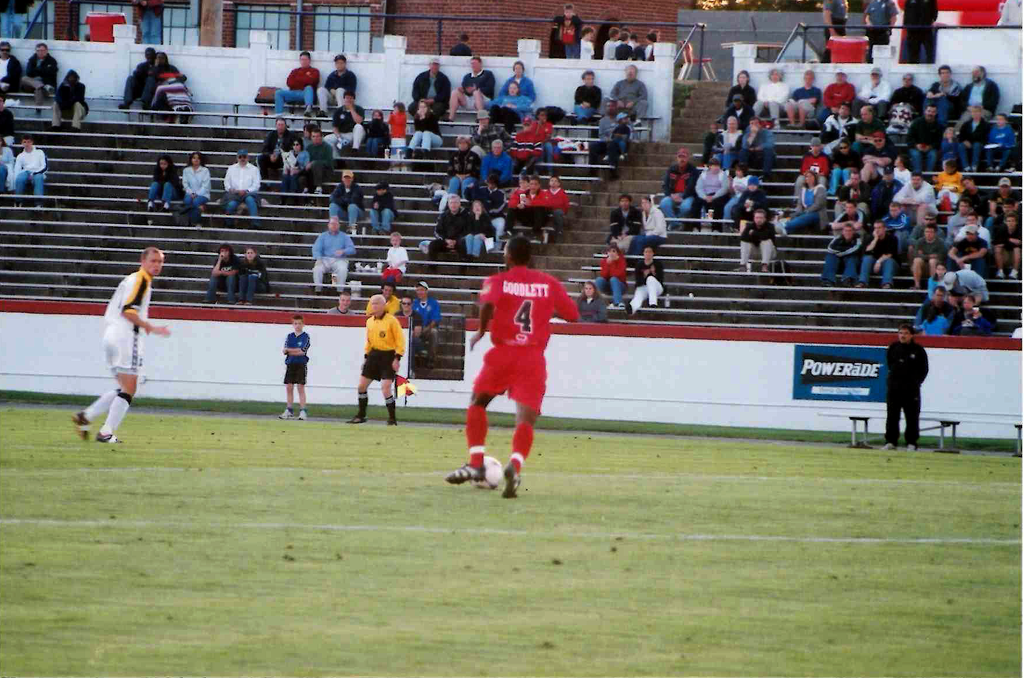
Playing in the 1990s and early 2000s, Goodlett’s era had different challenges for Black players. But Goodlett is hopeful for the newer generations of Black youth in soccer and says even in his earlier days he had Black players to look up to around him.
Goodlett spoke about high-profile Black USMNT players like Weston McKennie and Konrad de la Fuente who play for the biggest teams in the world along with arguably the greatest players of all time, Cristiano Ronaldo and Lionel Messi.
It’s clear to Goodlett that the future is bright for the U.S. Men’s National team through the perspective of a young, BIPOC player to see names like Tyler Adams, Zack Steffen, Sergiño Dest, McKennie, and de la Fuente playing for the national team.
“It’s clear that your skin color won’t stand in your way. Go out there and play, knowing that you’re going to be judged on your talent and character, just like everyone else,” Goodlett said.
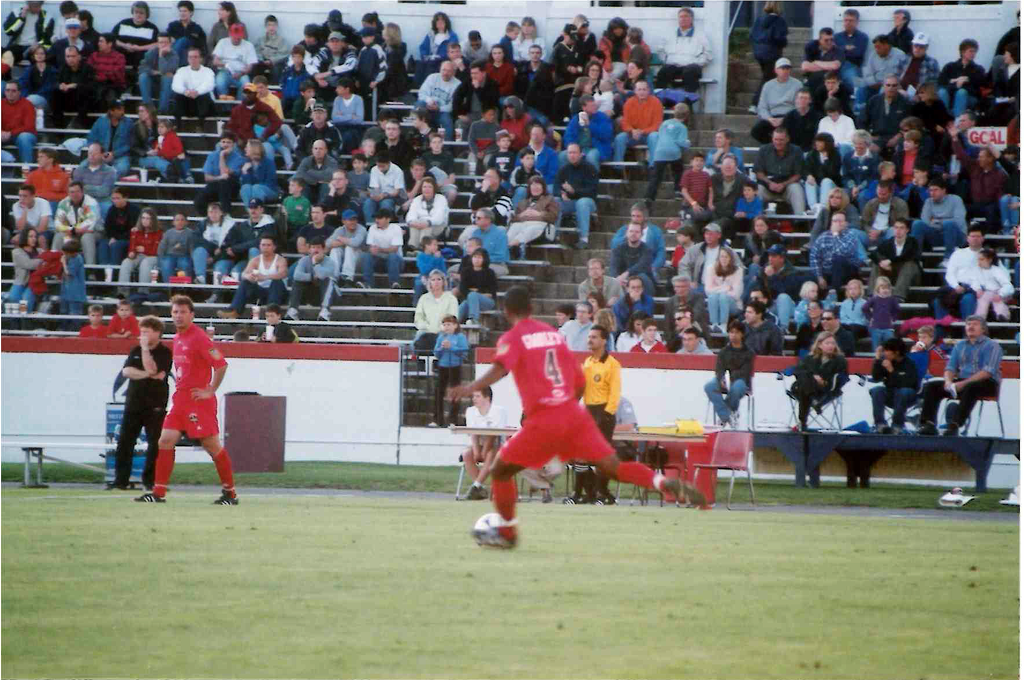
Furthermore, he gave advice for youth players looking up to the current generation of USMNT players.
“I would encourage [Black youth players] to continue to work on their craft, just work on their skills, work on the strength, work on their speed, focus on what they can control,” Goodlett said. “And just be careful not to believe all of the worst or most pessimistic descriptions of the world around.”
Ultimately, Goodlett embraces positivity and says he sees athletics and sports as one of the best ways to transcend a lot of struggles.
“You all have the same colored jersey on and that’s what matters when you’re playing,” Goodlett said, “It’s like we’ve got this common language and experience and pastime.”
